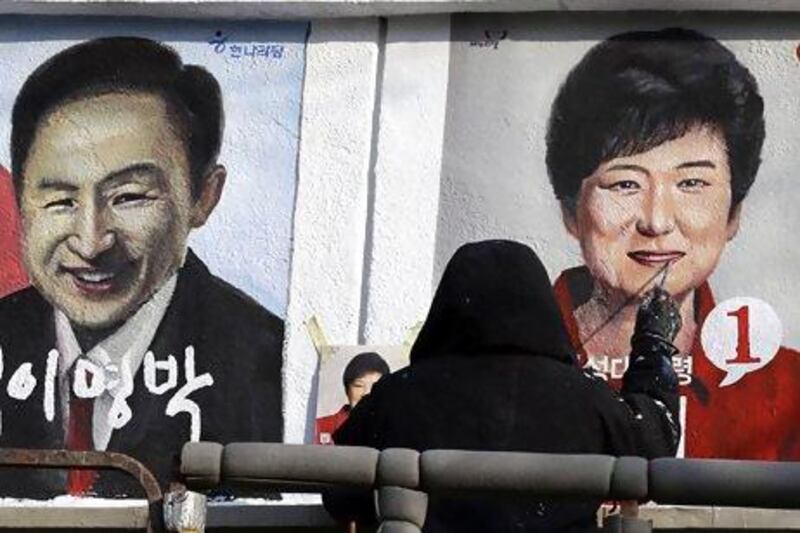This week has seen important elections in Japan and South Korea and a change of leadership in both countries that may signal a turning point for the Middle East.
In Japan, last Sunday's election saw the Liberal Democratic Party (LDP) retake power after three years in opposition. The head of the party, Shinzo Abe, will soon become the prime minister for the second time .
Mr Abe is perceived by the international press to be a Japanese nationalist, but less well-known was his engagement with the Middle East during his previous tenure as the prime minister.
He heard the call from oil-producing states in the Arabian Gulf that they wanted more investment from Japan than just the oil and gas sector. Mr Abe visited Saudi Arabia and the UAE in 2007 (the last Japanese prime minister to do so) and brought a delegation of more than 100 representatives from Japanese businesses for the very purpose of promoting such initiatives.
The legacy of his tenure includes a dedicated Japan desk in the Abu Dhabi Department of Economic Development, the first Japanese industrial facilities in the UAE from Abu Dhabi to Ras Al Khaimah, and increased cooperation between Japanese public institutions with Abu Dhabi National Oil Company (Adnoc).
Mr Abe's personal commitment to these initiatives ended with his untimely resignation in late 2007, just weeks before Lee Myung-bak won election as the president of South Korea.
Mr Abe's commitment to the Gulf was forgotten by the new leadership in Japan, but taken up by Mr Lee, who pursued natural resource diplomacy as a personal passion and commitment.
It is believed that Mr Lee's lobbying of Abu Dhabi was responsible for the success of the South Korean consortium in being awarded the US$40 billion (Dh146.93bn) nuclear power plant deal and the Korea National Oil Company (Knoc) signing a concession for offshore and onshore blocks that are to be explored and developed with Adnoc.
The UAE was not unique in receiving Mr Lee's frequent visits - in his five-year term he visited 84 countries. This is a departure from the trend of the past half-century. Japan has a history of partnership with Gulf oil states, particularly Abu Dhabi, whereas South Korean companies such as Knoc are recent entrants.
The growth of Japan and the development of the Gulf over the past half-century were linked - the Japanese economic superpower grew thanks to imports from the hydrocarbon exporting nations of the Gulf, and the Japanese were a reliable buyer, performing long-term contracts on schedule even when they resulted in short-term losses for the companies involved.
The countries of the Middle East account for 85 per cent of Japan's oil imports, a percentage that seems destined to grow further. But Japan is no longer the only Asian customer for oil exports, and as competition for the relationship grew in recent years, the victory of the opposition Democratic Party of Japan in 2009 saw a deliberate disengagement in the bilateral relationships carefully maintained by the LDP, at least at the highest levels of democratic politics.
Japan's ministries and institutions remained committed but the political support at the top was lacking.
Did South Korea's recent successes in the UAE and elsewhere come at Japan's expense?
Many think so. And yet this week may mark a turning point. The recent election in South Korea was similar to the 2009 election in Japan in that both were dominated by domestic concerns. Park Geun-hye, South Korea's first female president-elect, won a narrow victory and will likely find her focus at home. Meanwhile, with Mr Abe back as prime minister of Japan, this key partnership may be revitalised.
It is in the national interest of the UAE to promote ties with all its trading partners, and Japan and South Korea are each in a position to contribute to Abu Dhabi's Economic Vision 2030 with the diversification of the UAE economy away from overconcentratration on oil and gas.
But those who had given up on Japan's commitment in favour of South Korea should look at the Gulf's history and be ready for things to change.
Christopher Gunson is a lawyer at Pillsbury Winthrop in Abu Dhabi.





